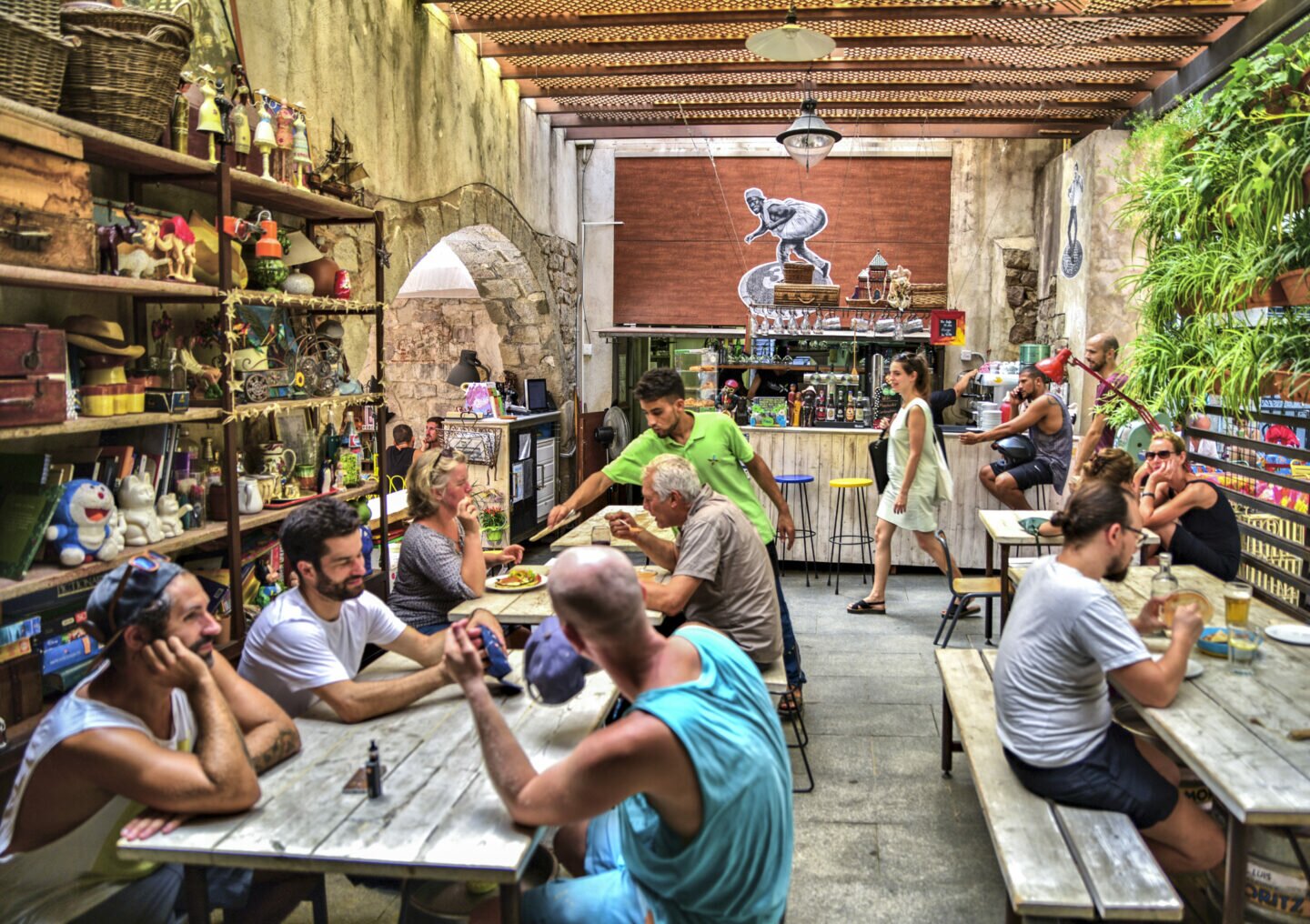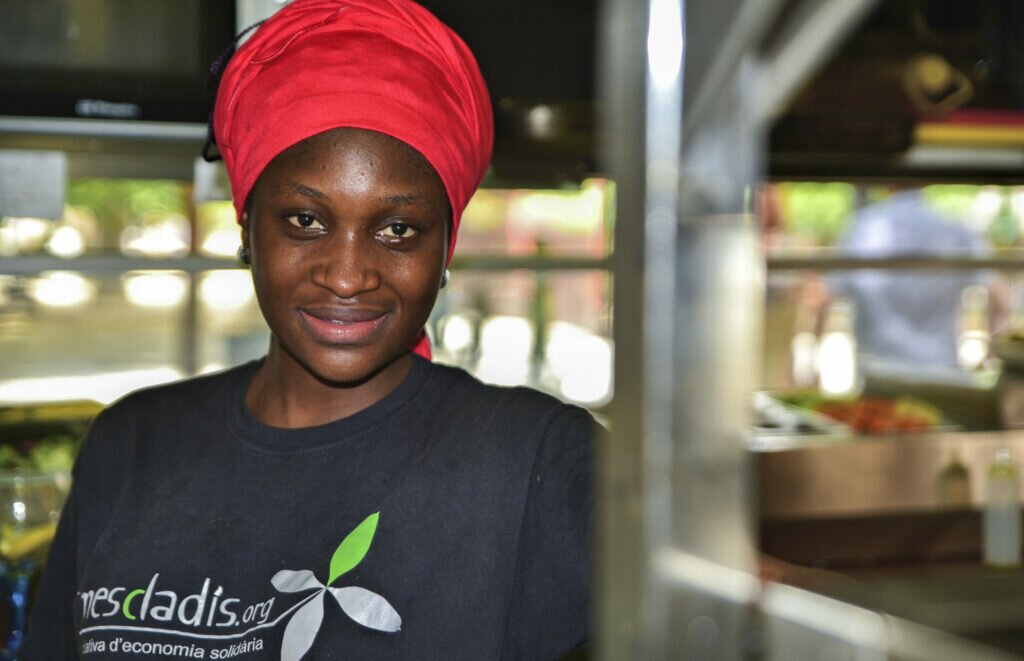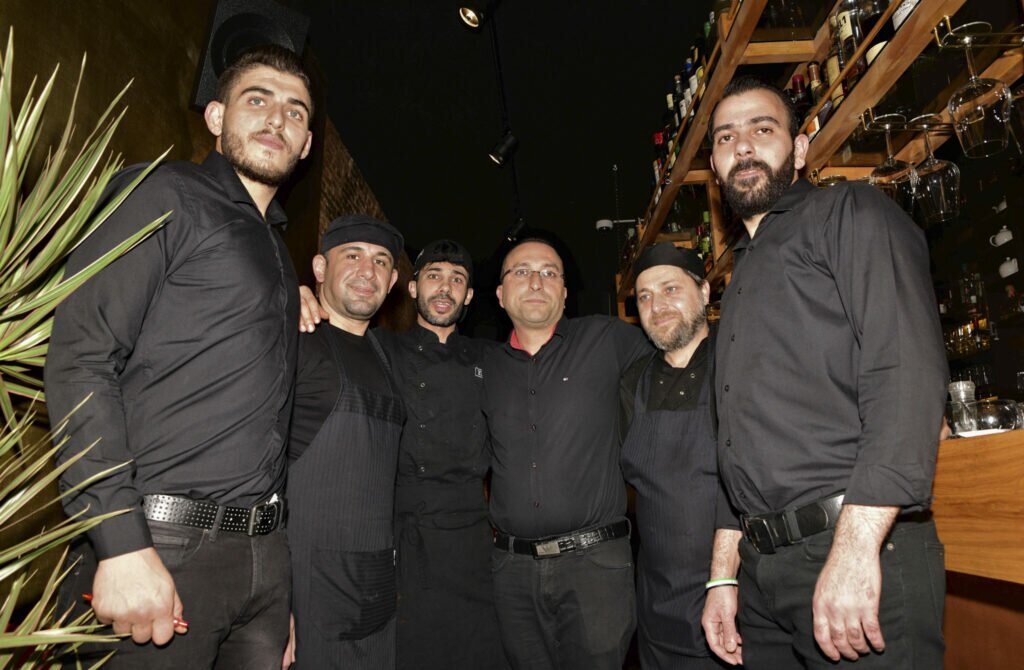Deep in Barcelona’s historic El Born, a 2,000-year-old suburb that’s now a nightlife hub, tourists and locals dine at a rustic, open-air restaurant. A mix of delicious Spanish and Moroccan food is being prepared, cooked and served to them by refugees. This is Mescladis, a non-profit organisation that provides training and employment to displaced people from countries such as Syria, Senegal, Venezuela, Sudan and Pakistan.
In the past decade alone, millions of desperate people have arrived in Europe from war-torn nations in the Middle East, Asia, Africa and South America. And this year at least 10 million Ukrainians have fled their homes due to the invasion by Russia, according to United Nations figures, with about four million of those seeking refuge in European nations.
Aside from donating to charities like UNICEF or the United Nations High Commissioner for Refugees, you can help by visiting organisations and patronising businesses that support refugees on your next holiday in Europe. From Spain to Germany and Italy, there are restaurants, tour agencies, art centres and theatre companies that provide jobs, training or platforms for displaced people trying to build a new life in Europe.
Contrary to what many may think, landing in a foreign nation may offer peace but doesn’t guarantee happiness or prosperity. Refugees also need opportunities to integrate and flourish in their new nations. That is the goal of Mescladis, says its founder Martin Habiague.
Refugees are welcomed to Mescladis, where they can learn to be a waiter or cook during free, three-month training programmes. Mescladis then helps them to find employment at other restaurants, cafes or bars in Spain. On a recent trip to Barcelona, I was struck by the upbeat energy and professionalism of its culturally diverse staff.
Mescladis now also has a second restaurant in Barcelona’s Eixample neighbourhood, with an attached cuisine school. Habiague, who emigrated to Europe from Argentina at age 27, said that in his early years in this new continent, he often felt lost as he sought to gain employment, housing and legal residency. It was these jarring experiences that pushed him to create Mescladis.
A similar motivation drove Syrian Mumen al-Azhar to open Amsterdam’s first Syrian restaurant, Sham, in 2016. Most employees are Syrian refugees who prepare delicious Fatoush salad, hummus and date cookies.
Cultural conversations
In neighbouring Germany, meanwhile, fellow Syrian Mohamad Othman gives tourists a unique perspective of Berlin by working for Refugee Voices walking tours in the German capital. He, too, found himself adrift in an alien environment when he fled his adopted homeland of Libya after its brutal civil war erupted in 2014.
With Syria also mired in bloody conflict at that time, Othman and his brother headed to Germany to reunite with their sister. In 2016 he met British Lorna Canon, who had founded Refugee Voices Tours the previous year. Germany welcomed hundreds of thousands of Syrian refugees after its war began, so Othman suggested that Canon lead a new tour called “Why we’re here”, giving context to the crisis.
For the last six years, he’s been leading English-speaking tours for travellers, locals and student groups. “We try in our tours to provide a platform for the people that have questions about the Syrian conflict and its effects,” Othman said. “We do that by drawing parallels between historical events that happened in Germany those that took place in Syria. Our aim is to spread awareness and inspire empathy for Syria and the challenges faced by refugees as they try to find safety.”
Home to almost two million refugees, Germany has many organisations that aid displaced people, with which tourists can engage. In Dresden, a pretty city near Germany’s border with the Czech Republic, the Hellerau European Center for the Arts has long provided a platform for refugee artists, said its Head of Communications Henriette Roth.
“Currently we offer short-term special residencies for artists from Ukraine as part of our regular residency programme,” she said.” These special residencies include accommodation, working space, artistic fees and support for networking within the local art scene. The residencies are awarded for four weeks, with the aim of supporting the artists in their subsequent placement or longer-term arrival in Dresden.”
Tourists can visit Hellerau to admire its art exhibitions or its dance, theatre and music performances, which feature diverse casts. Or they can travel to the majestic and ancient city of Bologna, midway between Milan and Venice in northern Italy, to watch stage plays performed by refugees.
For almost a decade, displaced people arriving in Italy have been welcomed by Bologna’s Cantieri Meticci Theatre Company. It organises creative workshops and theatre productions involving both Italian citizens and asylum seekers, with regular shows in Bologna and festivals across the world.
So the next time you’re fortunate enough to be on holiday in Europe, consider helping those forced to flee to this continent by supporting the initiatives that bring them a sense of purpose.


